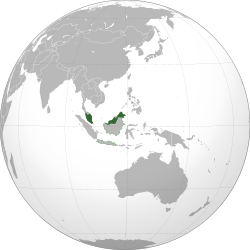The Anwar Verdict And Malaysian Elections: What Will Be The Impact? – Analysis
By IPCS
By Chongtham Gunnamani
A Malaysian court verdict of 9 January 2012 has acquitted the former Deputy Prime Minister Anwar Ibrahim of sodomy charges that lasted 14 years. Many analysts see the charges as politically motivated as a part of Malaysia’s policy to suppress political opponents. However, this verdict can be appreciated on two accounts: first, it proves the existence of an independent judiciary against the government’s attempt to curb political opponents through unfair means. Second, it enhances Anwar’s political image and that of the opposition, known as People’s Alliance, which he leads. The general elections are also drawing closer and are to be held by 2013, but some speculations have been made about the elections being conducted in March-April 2012. The verdict on Anwar will play a major role in these elections.
How would the verdict impact the elections?

For years, Anwar has been a vocal critic of the ruling United Malays National Organization (UMNO)-led coalition government, which is also known as National Front. The Front has been in power since Malaysia’s independence in 1958. Due to the long years of rule marked by lack of transparency, alleged nepotism, cronyism and corruption, the UMNO-led government is hugely unpopular.
UMNO’s unpopularity has already been witnessed in the last 2008 general election. It marked a severe defeat for the ruling coalition as compared to the previous elections. UMNO won only 8 out of 13 states, and also lost their previously held two-third majority in the national parliament.
The 2008 election has brought about a great change in the overall electoral configuration of Malaysia. Previously, voters preferred candidates from their respective communities, but in the last elections the tendency to choose effective candidates transcending ethnic and religious identities was noted. The primary reason for this change is the role played by the emerging urban middle class and their cosmopolitan outlook. In addition, the role of social networks such as Facebook, Twitter and the like served as a platform for the people to express their dissent.
Among the growing urban middle class and the youth that represent a liberal outlook, Anwar is drawing a fair bit of attention. He speaks of ending decades of preference for Malays in the country’s socio-economic and political activities. He rejects the discriminatory policies towards ethnic Chinese and Indians of the UMNO-led government, for which he is widely acclaimed among the international community and the progressive sections of the Malaysian public. Besides, Malaysia is currently facing a high inflation rate which would certainly have an impact on UMNO’s position as well. It is at this juncture that the Anwar verdict is important to calculate the prospects of the upcoming general election in Malaysia.
Why expect an early election?
Although the normal term will be completed on 2013, some politicians and analysts expect the possibility of an early general election. On 9 January 2012, after a discussion between the UMNO’s senior party members, a party leader told the media that he expected the elections to be held by March or April 2012. One of the reasons for this could be the growing discontent among hardliner members of UMNO against Prime Minister Najib Razak for his moderate political attitude. Najib could therefore wish to conduct the general election in Malaysia before the UMNO internal election in mid-2012, during which time the party leadership may undergo change. Another major reason for the speculation of an early election is that the economy of Malaysia is under pressure due to the global economic crisis. It is trying hard to sustain the growth with high inflation. The government wants to conduct the election as early as possible before the economy worsens, which may further reduce their popularity.
What results can be expected?
It is doubtful whether Anwar and the verdict would solely determine the result of the elections in favour of the opposition. There is persisting skepticism about the manner in which the conservative Islamic populace and the Malay rural majority voters would perceive the recent verdict on Anwar. It may take more time for the vast rural ethnic Malay voters which have been deeply ethnicized for decades to develop relations with other ethnic communities. Furthermore, Anwar’s promise of sweeping reform, including a rejection of Malay preference over the Chinese and Indians, would gain more voters from the progressive Malays, Chinese and Indians, but may deter conservative Malay voters.
The hope for a change in political authority has already been reflected in the electoral behavior of the people in the 2008 elections. In addition, the setbacks of the UMNO which has been stated above, and the verdict which now allows Anwar free participation in politics, would of great benefit to the opposition. The verdict would certainly be a boost to Anwar’s political status, and help in re-strengthening the opposition cutting across ideological barriers. Taking these scenarios into account, the opposition coalition may win the upcoming elections.
Chongtham Gunnamani
Research Intern, IPCS
email: [email protected]
